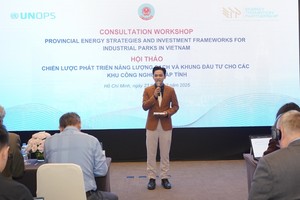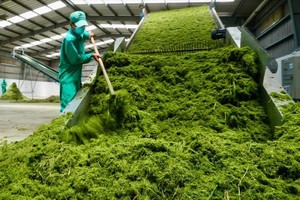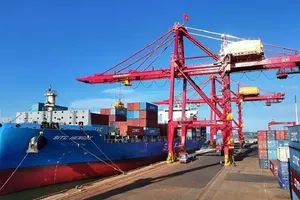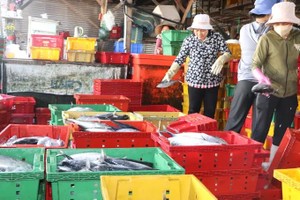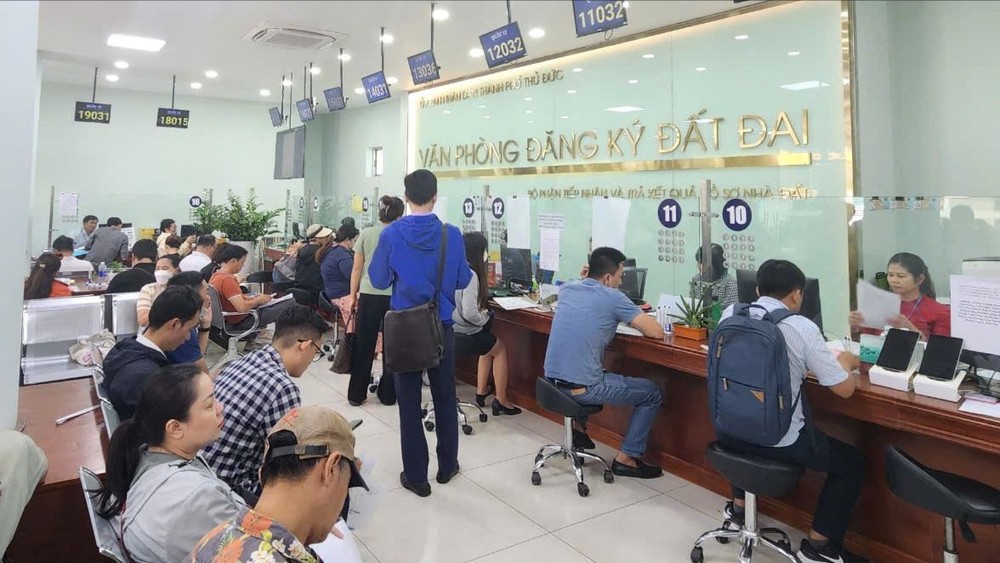
According to the HCMC Tax Department, land-related revenue sources include agricultural and non-agricultural land use taxes, land and water surface rental fees, land use fees, and fees from renting and selling State-owned housing. In the first nine months of 2024, these revenues reached VND10.51 trillion, fulfilling 26.6 percent of the annual forecast and increasing by 58.1 percent compared to the same period last year. As of October 7, revenue stood at VND10.67 trillion, meeting 27.1 percent of the target.
Revenue linked to real estate transactions, such as personal income tax and registration fees from real estate transactions, reached VND6.54 trillion in the first nine months, up 52.7 percent year-on-year, and had risen to VND6.83 trillion by October 7.
In total, land-related revenue, including that from real estate transactions, reached VND17.05 trillion in the first nine months, an increase of 56 percent from last year. By October 7, this total had climbed to VND17.5 trillion.
The HCMC Tax Department reported that land use fee revenue reached nearly VND6 trillion in the first nine months of the year, a 53.78 percent increase compared to the same period last year. This growth was largely driven by substantial, one-time payments and debt settlements, most notably VND811 billion from a project in Binh Chanh District by Khang Phuc Housing Co., Ltd.
Additionally, with the new Land Law taking effect on August 1, 2024, and a revised land price list forthcoming, many individuals have opted to settle outstanding land use fees and increased applications for land use purpose changes. This has contributed to the cumulative revenue increase compared to the same period last year, especially in July with VND1.15 trillion collected, up 122.7 percent year-on-year, and August with VND820 billion collected, up 102.9 percent year-on-year.
For land rentals, revenue exceeded VND4.2 trillion in the first nine months, up 72 percent from the previous year. This increase was due to major debt settlements and one-time land rental payments, including VND156 billion from Dat Xanh Group and VND 115 billion from the Transport Construction Mechanical JSC.
Moreover, government policies to extend and reduce land rental fees also contributed to the growth in land rental revenue.
Although land use fee revenue in HCMC has experienced significant growth, it has only reached 17.47 percent of the annual target after the first nine months. The city's tax department attributes this shortfall to the 2024 revenue forecast, which was based on expectations of land auction proceeds and the launch of new projects in the city. Specifically, the 2024 budget projected VND23.865 trillion in revenue from land auctions and related financial obligations.
However, the actual implementation of these projects has been delayed due to legal, procedural, and market challenges, preventing the revenue from meeting the projected timeline.
Real estate transactions spiked as people rushed to complete deals before the new Land Law took effect. In June, there were over 11,600 property transfers, generating VND701 billion in personal income tax, up 50.2 percent compared to the same period last year. In July, nearly 12,300 transfers were recorded, bringing in VND723 billion in personal income tax, a rise of 80.1 percent year-on-year.
Similarly, registration fees from property transfers also saw a significant increase.
However, between August 1 and September 21, after the new Land Law came into force, real estate transactions sharply dropped as the HCMC People's Committee had not yet released the updated land price list. This caused a decline in tax revenue. Since September 21, the number of tax filings has rebounded, showing an increase compared to the same period last year.




